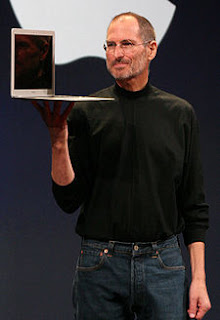 A computer virus is a computer program that can copy itself and infect a computer without the permission or knowledge of the owner. The term "virus" is also commonly but erroneously used to refer to other types of malware, adware, and spyware programs that do not have reproductive ability.
A computer virus is a computer program that can copy itself and infect a computer without the permission or knowledge of the owner. The term "virus" is also commonly but erroneously used to refer to other types of malware, adware, and spyware programs that do not have reproductive ability.A true virus can only spread from one computer to another (in some form of executable code) when its host is taken to the target computer; for instance because a user sent it over a network or the Internet, or carried it on a removable medium such as a floppy disk, CD, DVD, or USB drive. Viruses can increase their chances of spreading to other computers by infecting files on a network file system or a file system that is accessed by another computer.
The term "computer virus" is sometimes used as a catch-all phrase to include all types of malware. Malware includes computer viruses, worms, trojan horses, most rootkits, spyware, dishonest adware, crimeware, and other malicious and unwanted software), including true viruses.
Viruses are sometimes confused with computer worms and Trojan horses, which are technically different. A worm can exploit security vulnerabilities to spread itself to other computers without needing to be transferred as part of a host, and a Trojan horse is a program that appears harmless but has a hidden agenda.
Worms and Trojans, like viruses, may cause harm to either a computer system's hosted data, functional performance, or networking throughput, when they are executed. Some viruses and other malware have symptoms noticeable to the computer user, but many are surreptitious.




Most personal computers are now connected to the Internet and to local area networks, facilitating the spread of malicious code. Today's viruses may also take advantage of network services such as the World Wide Web, e-mail, Instant Messaging, and file sharing systems to spread.
Fred Cohen is an American computer scientist and best known as the inventor of computer virus defense techniques.
In 1983, while a student at the University of Southern California's School of Engineering (currently the Viterbi School of Engineering), he wrote a program for a parasitic application that seized control of computer operations, one of the first computer viruses, in Leonard Adleman’s class.
One of the few solid theoretical results in the study of computer viruses is Cohen's 1987 demonstration that there is no algorithm that can perfectly detect all possible viruses.
He has many other works related to computer viruses.






